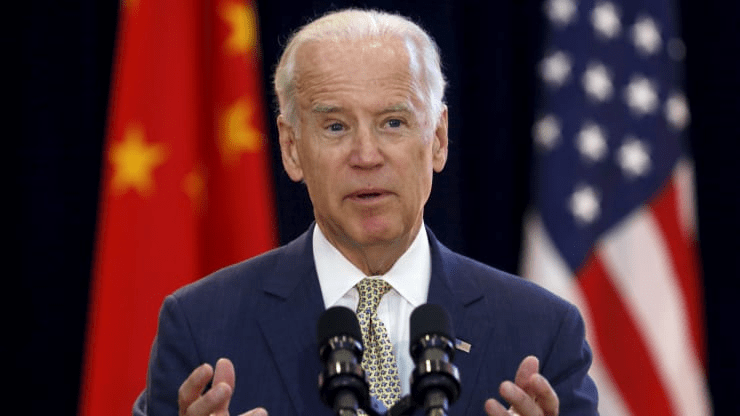U.S.-China trade tensions are set for more predictability after Joe Biden’s presidential win — which likely means calmer rhetoric in a continued tough stance on Beijing.

Following years of brewing U.S. complaints about unfair business practices by China’s state-dominated system, President Donald Trump stepped up pressure on Beijing with policy measures that were often abruptly first floated through social media posts on Twitter. Ultimately, his administration levied tariffs on billions of dollars’ worth of Chinese goods and hurt Chinese telecommunications giant Huawei with sanctions.
The world’s two largest economies signed a phase one trade agreement in January, bringing some reprieve to the tensions of the last two years. However, critics say China is behind on fulfilling agreed-to purchases of U.S. goods, while negotiations for a phase two deal have yet to start.
It’s also unclear how a Biden administration will handle tariffs, which have hurt businesses in both countries after China responded to U.S. duties with tariffs of its own.
Analysts have pointed out that a Biden administration would be able to work with U.S. allies more effectively than Trump to pursue a more cohesive strategy against China. One of the few issues both Republicans and Democrats have come to agree on is tougher policy against the Communist Party-led country.
In his first speech as president-elect, Biden said he would focus on controlling the coronavirus pandemic. He did not mention China. In keeping with a growing theme in both countries, the president-elect holds that “economic security is national security,” according to his foreign policy plan.
“Biden is reasonable,” Xu Hongcai, deputy director of the Economics Policy Commission at the China Association of Policy Science, said in a phone interview, according to a CNBC translation of his Mandarin-language remarks. “Biden, Obama, they understand the basics of holding a dialogue.”
Xu noted “an end to the irrational era of Trump” and his use of tariffs, sanctions and other “crude” tactics for resolving problems of unfair trade practices. Instead, Xu said China could help the U.S. with infrastructure development and cooperate on international trade. He claimed that Beijing is already working to address issues such as restructuring state-owned companies, which the U.S. has been pressing for in trade negotiations.
U.S.-China trade tensions won’t be going away under Biden’s administration, CNBC, Nov 9